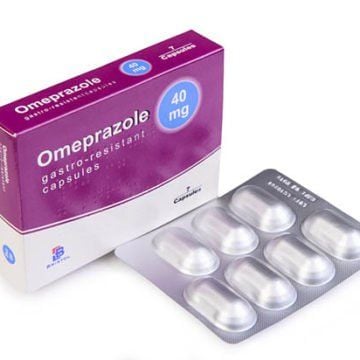This is an automatically translated article.
Siloxogene is in the form of tablets used to treat a number of problems in the gastrointestinal tract. What is Siloxogene?
1. What diseases does Siloxogene treat?
What is Siloxogene? This drug belongs to the group of gastrointestinal drugs with ingredients including Aluminum Hydroxide, Magnesium Hydroxide and Simethicone.
In which, Aluminum Hydroxide, Magnesium Hydroxide are common ingredients in Antacid, which neutralize hydrochloric acid in the stomach. Thanks to this neutralizing ability, the drug relieves the symptoms associated with excess gastric acid. Simethicone ingredient reduces the surface tension of air bubbles in the stomach, causing these bubbles to gather and exit easily, reducing symptoms of flatulence and abdominal distension.
Siloxogene is indicated in the following cases:
Treatment of symptoms of increased gastric acid secretion: heartburn, heartburn (including diseases related to inflammation, gastrointestinal ulcers); Treatment of heartburn in pregnant women; Treatment of digestive disorders with manifestations of increased acid secretion, flatulence, excessive intolerance to food and drink. Siloxogene is contraindicated in the following cases:
Patients with reduced gastric acid, acid deficiency, pyloric stenosis, appendicitis; Children under 6 years old.
2. Usage and dosage of Siloxogene
2.1. How to use When using Siloxogene, the patient needs to chew the tablet thoroughly before swallowing. Doctors recommend that patients should take the drug after eating.
2.2. Dosage Adults: Chew 1-2 tablets/time, take a dose of 3-4 times/day after eating; Children over 6 years: Take 1/2 the adult dose or as directed by your doctor. 2.3. Overdose Symptoms of an overdose of Siloxogene are quite similar to the side effects. In addition, patients may experience liver and kidney toxicity. Therefore, patients need to be closely monitored for skin, facial, blood pressure, and prevent dangerous conditions. It is best for the patient to notify the doctor for timely treatment.
2.4. Missed dose Patients should avoid forgetting doses of Siloxogene. If you miss a dose, skip the missed dose and take your next dose as scheduled. In particular, do not skip doses more than 2 times in a row.
3. Side effects of the drug Siloxogene
When using Siloxogene, patients may experience some unwanted side effects. They are:
Mild constipation; Laxative or diarrhea ; Nausea and vomiting; Mottled or pale stools; Abdominal pain due to stomach cramps. Patients should inform their doctor about unwanted side effects related to the use of the drug for timely intervention.
4. Be careful when taking Siloxogene
Some notes when using Siloxogene:
Using antacids can mask the symptoms of internal bleeding secondary to non-steroidal anti-inflammatory drugs; Siloxogene contains magnesium, so it can cause diarrhea; Use caution when administering Siloxogene to patients with renal failure; In a low phosphorus diet, the drug can cause phosphorus deficiency; Do not take the medicine if you have symptoms of enteritis or appendicitis. An examination should be performed to determine the exact; Take Siloxogene medicine away from other drugs about 1-2 hours; There are some people who are sensitive to adverse drug reactions, so they may be at a disadvantage if they drive, operate machinery, etc. It is necessary to check each person's response before performing complicated tasks; Siloxogene should only be used when absolutely necessary, as prescribed by a doctor, for pregnant and lactating mothers.
5. Siloxogene drug interactions
Some Siloxogene drug interactions include: Siloxogene can reduce the absorption of some drugs when taken simultaneously (including acetaminophen, alendronate, cefpodoxime, diazepam, grepafloxacin, tetracycline, anticholinergics, cimetidine, indomethacin, digoxin) , isoniazid, iron-containing preparations, phenothiazines, fat-soluble vitamins,...). Therefore, Siloxogene should be taken 1-2 hours apart from other drugs.
During the use of Siloxogene, the patient should absolutely follow the doctor's instructions on the dose, avoid increasing or decreasing the dose. At the same time, patients should inform their doctors about the drugs they are using for advice on how to use them appropriately and avoid drug interactions.
Please dial HOTLINE for more information or register for an appointment HERE. Download MyVinmec app to make appointments faster and to manage your bookings easily.













